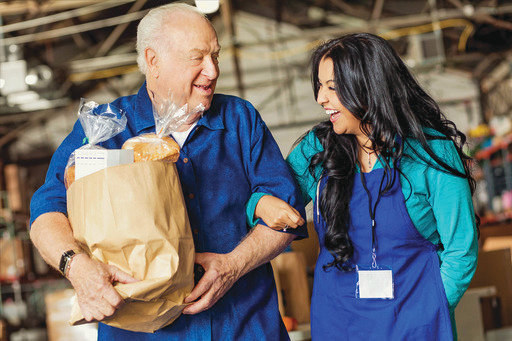10 Tips for Being a Good Caregiver
Gurwin Family of Healthcare Services
Being a caregiver for a loved one can be a very fulfilling experience, but may also be one of the most difficult times in one’s life. The challenges faced are unlike any other; for many, taking care of a loved one is a 24-hour a day commitment. Honing or adopting new skills can help with both juggling daily responsibilities, and the added caregiver duties. Nancy Geiger, Director of the Gurwin Home Care Agency, offers the following tips to help with the transition to the role as caregiver:
1. Communicate: Communication is the key to any good relationship. Make sure you are clear in your communication with your loved one and that you listen as well. It’s also important to keep other family members in the loop, so they understand the circumstances and can help if needed. Sharing pictures and updates through regular texts to family members keeps everyone on the same page and can prompt phone calls to brighten your loved one’s day.
2. Keep Your Composure: Most new caregivers are thrust into situations that they have never been in, and this can often be uncomfortable as both you and your loved one get adjust to your new roles. It is important to keep calm and remain practical, providing care and caring in such a way as maintain your loved one’s dignity. It is helpful and respectful to have discussion and agreement when you are about to initiate a task. This prepares the individual and makes it feel more of a collaborative effort.
3. Be Creative: Painting, gardening, and music can help build a much needed bond between caregiver and dependent. Being creative will also help when things are not so easy, helping you to find unique ways to encourage your loved one to eat, bathe or perform other essential tasks.
4. Be Dependable: People receiving care rely on their caregiver for assistance day in and out. It’s difficult to lose the feeling of independence and no longer being able to do basic tasks for yourself. Knowing you can be counted on to for whatever is needed and keeping a regular routine will instill in your loved one a sense of confidence and feelings of safety and relief.
6. Maintain Your Sense of Humor: Laughter is the best medicine, and finding humor in a difficult situation will help both of you get through some tough and challenging situations.
7. Be Patient: Dependents tend to get frustrated easily, and may express this in different ways. It is important for you to have patience and not show your own frustrations. If you sense some escalated emotions, take a deep breath and realize that you are there to help, not cause your loved one to feel like a burden.
8. Be Practical: Having a realistic outlook about a health situation is important. There is always room to hope for the best, but as a caregiver you also a need to understand the limitations of your loved one. It is always good to encourage independence, but be practical in what you expect, and be prepared to change expectations depending on their condition at any given time.
9. Take Care of Yourself: Understand your own limitations with time and emotional stress, and ask for help when you need it. Sometimes just a day’s respite can recharge you and help you come back ready to fulfill your responsibilities again. Remember, being a good caregiver begins with caring for yourself!
10. Know When to Call In Reinforcements: Enlisting help from a home health aide can provide the necessary respite to help prevent caregiver burnout. They understand how challenging the care of a loved one can be and can provide much needed assistance, from as little as 4 hours per day a few days per week, to full-time help if required. The companionship an aide provides can give your loved one a new outlook as well as help reinforce safe and productive routines that you have been trying to convince them of all along.
Becoming a caregiver for a loved one is a role many of us will experience in our lifetimes. Keeping a positive attitude and getting the appropriate support can help to make it a pleasant experience for all concerned and make a difference in the life of the one you love.
Author Nancy Geiger is the director of the Gurwin Home Care Agency. She is happy to assist caregivers with finding an appropriate care situation for a loved one. Contact Nancy at 631-493-1282 or 516-539-2300, or via email at ngeiger@gurwin.org.
For information about the Gurwin Family of Healthcare Services, visit www.gurwin.org.

 47.0°,
Fair
47.0°,
Fair 




